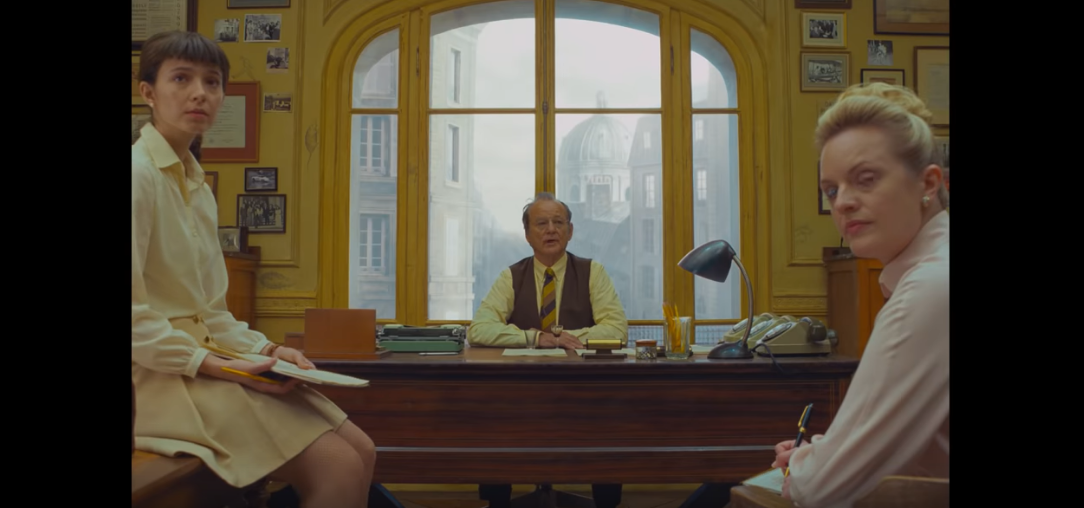Wes Anderson’s “The French Dispatch” has a lot of stars, so many that fans of the director are chomping at the bit to see it. But they’re ignoring the reviews so far from critics who also enjoy Anderson’s movies but could not navigate this film. I am now one of those.
Not a movie but a series of vignettes, “The French Dispatch” is supposedly a New Yorker-like magazine attached to a Kansas City newspaper, based in a French village. You would have to know a lot about the history of The New Yorker to really appreciate the way Anderson has framed this movie– know about editor Harold Ross, and his famed set of writers from the 30s through the 70s. This is rarefied air, to be certain, a very thin atmosphere that doesn’t allow breathing.
Let’s try to break it down. Bill Murray plays the Ross-like editor, and we learn up front that he has died. So we’re going to go back and look at three interminable feature pieces that ran during The French Dispatch’s halcyon days. Of the three, only the first is coherent enough to make us care. This is a story about a convicted murderer who becomes an artist in prison. Benicio del Toro is the artist. Adrien Brody is the art gallerist who makes him famous. They are the only actual well-drafted characters in a sea of appearances.
I must add here that Tilda Swinton is note perfect doing a parody of the real life late Metropolitan Museum of Art lecturer Rosamund Bernier. But how many people in the world will understand what’s going on here? Beats me. Fifty? A hundred?
The two other stories are very hard to follow and have no relation to the first one. What’s supposed to hold them together is that we return to Murray and The French Dispatch’s offices. But all those stars featured in the ads and publicity,they are walk ons. Or drive-bys. Elisabeth Moss, for example, has nothing to do. Bob Balaban and Henry Winkler are all dressed up with no place to go. Frances McDormand and Timothee Chalamet have more to do, but it adds up to very little.
“The French Dispatch” is such a collection of chaotic nothing that you have to look at what works. That would be the production design by Adam Stockhausen and the art and set decoration. All the ‘below the line’ craft people deserve Oscar nominations. Their work is impeccably inventive down to the most minute details. But isn’t that the problem? There’s more coherence to the production than there is to the narrative. This is really a case of style over substance.
Our screening was the closing night film of the Hamptons Film Festival, which should have been the exact right audience for so much pretentiousness. Yet the folks in Guild Hall didn’t get it. Many walked out before the show was over. Someone was overheard saying they were glad they’d been told in advance that this had something to do with The New Yorker.
But in the end, “The French Dispatch” has absolutely nothing to do with the venerated magazine or its fabled history. It has even less to do with the Wes Anderson movies we’ve loved, like “The Royal Tenenbaums” or “Moonrise Kingdom.” There are no characters, no plot, and no heart. It’s as if someone dumped a bunch of notes for potential stories on Harold Ross’s desk and instead of being shaped they were just thrown in a blender that was set to ‘frappe.’

